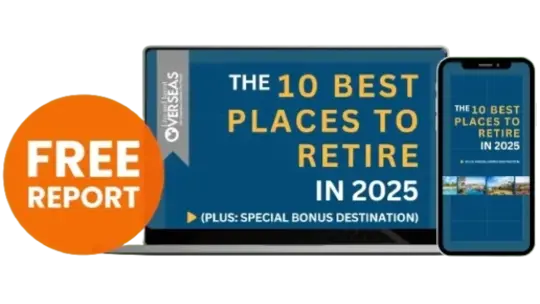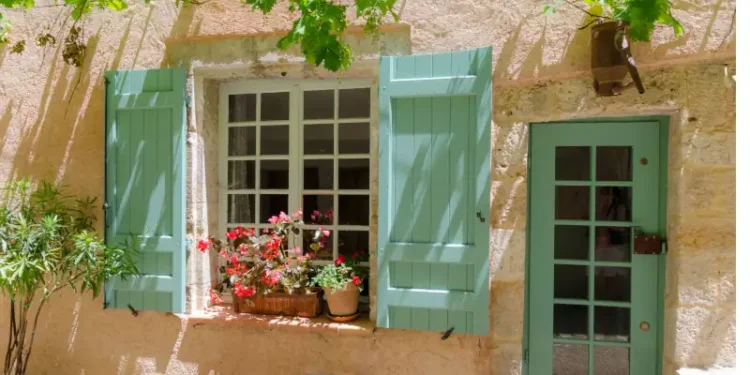My family and I recently rented a house in the south of France—not a vacation home, just a new place to live for a while.
My husband and I worked out every morning as usual, worked normal schedules, took remote meetings. We had no school, creche, nannies, or babysitters, so we were also full-time stay-at-home parents, doing far more every day than we would back home.
But we took multiple swim breaks in the pool throughout the day… grilled dinner and ate on the patio every evening…
My 5-year-old daughter went to horse camp… the baby walked naked in the yard…
I tended the kitchen garden, harvesting tomatoes, squash, peppers, and herbs to cook with every night…
Harry cleaned the pool, satisfying manual labor that he’s often complained of lacking in the city…
I never thought I’d say it… but for the first time in my life, I have the urge to live outside of a city.
We visited Bordeaux a couple of times on the weekends. We had never been and felt compelled to check it off the list. But frankly, we never wanted to leave the house, and every time we did, we couldn’t wait to get back.
We were in the middle of nowhere, and we were all loving it.
This tiny village, Landiras, about 30 minutes south and inland of Bordeaux, is a wine country hamlet.
Up until a year ago, you couldn’t get groceries here except for a few items from the market on Sunday mornings. A relatively large grocery store moved in recently, though, making life here much more convenient.
When I told some French friends where I was coming, they snickered a bit. I was quick to say “middle-of-nowhere” is what we were looking for. A big backyard, a pool, and a big kitchen and living room, nothing more.
“Well, that’s what you’ll get!” one friend said, grinning, adding that she came from this region, her grandparents still lived about 10 minutes from Landiras.
The house we chose is only rented when the family of four that usually lives there goes away. When we visited, the wife and two kids were staying with the in-laws in Bordeaux while the husband was away on military duty. They make a few hundred euros while they’d be away anyway.
What that means is, we were living in someone’s home—not an Airbnb meant to be rented. There are many notable differences…
On the one hand, we were told to bring our own bed linens and towels… Inconvenient.
On the other: a full size, American-style washing machine and dryer!
And the house is a real home, used by a family, just like ours, every single day. Everything you want to be in a kitchen is there, not just the random castoffs that usually furnish a second home.
Plus, it’s a home with kids—toys galore! One bedroom even has butterflies on the pink walls, captivating our girls.
The fact that in every corner was a collection of toys—most of which are far too big to fit in our Paris apartment—as well as a playhouse, slide, and trampoline in the yard, meant that our kids were more active and self-entertained than they’ve ever been.
I can’t sugarcoat the downsides, though. The village life was fun as a novelty, but it would surely annoy me as time went on.
It took some serious planning to adjust for local business hours and availability of goods…
When the grill ran out of propane, we went on a hunt for the specific type that ended up taking multiple trips to nearby towns over several days. In the end, we had to use an archaic coal backup. (Which was delivered by hand by a neighbor, who proceeded to run to the store to bring us back two bags of coal.)
I still have no idea what the butcher’s hours were… more likely, he had none at all. We passed the shop every day at different times, and I only ever saw it open once around 2 p.m. on a Thursday.
What you could count on was the three days a week that food trucks would come to the church parking lot in the center of town to hawk their goods. Sunday would see a big produce stand, bakery table, butcher truck, rotisserie with chicken, ribs, and more on demand, and oysters driven from Arcachon Bay that morning.
The other days were for the lunch truck. Salads or sandwiches on Tuesday, pizza or burgers on Thursdays.
Landiras has to be the first town I’ve ever come across in France to have no café or restaurant. There was a little pizza place on the back road out of town, but no place to sit and watch the town pass by.
It also had no bakery—the nearest was about 20 minutes away, along with most things.
Instead of post office, bank, convenience store, liquor store, and everything else this town lacked, was the tabac. Here, you can get or do just about anything.
Most tabacs limit their inventory to smokables, lottery tickets, and drinks. Some also sell basic food.
This one sold clothes and toys, baked goods, hot food and drinks, cold food and drinks, newspapers, CBD, pantry items, and more types of high-end liquor than I’d expect… plus they’ll mail your letters and give you cash from the till for a credit charge, effectively the town’s ATM.
And, contrary to standard French culture, it was open every day of the week. From 6:15 a.m. to 7:45 p.m. no less—easily the hardest working business in the country.
The nearest neighboring towns were between 15 and 20 minutes away, but there were multiple vineyards within 10. With wineries housed in everything from chateaux, forts, rustic, rambling country homes, to modern steel structures, wine and its production is this region’s trademark (literally).
Most wine estates welcome visitors, both by reservation and walk-in, offering tours, activities, and education, many even advertising kids’ play areas to make a tasting a family-friendly affair.
With the Atlantic beach an hour away, big-city Bordeaux at 30 minutes, Paris just two hours by train, and the Mediterranean at 3 hours by train, this seems like a pretty great location in the country…
Great enough to leave Paris?
I’m very tempted.
Stay tuned…
Bonne route,

Kat Kalashian
Editor, In Focus: Europe











